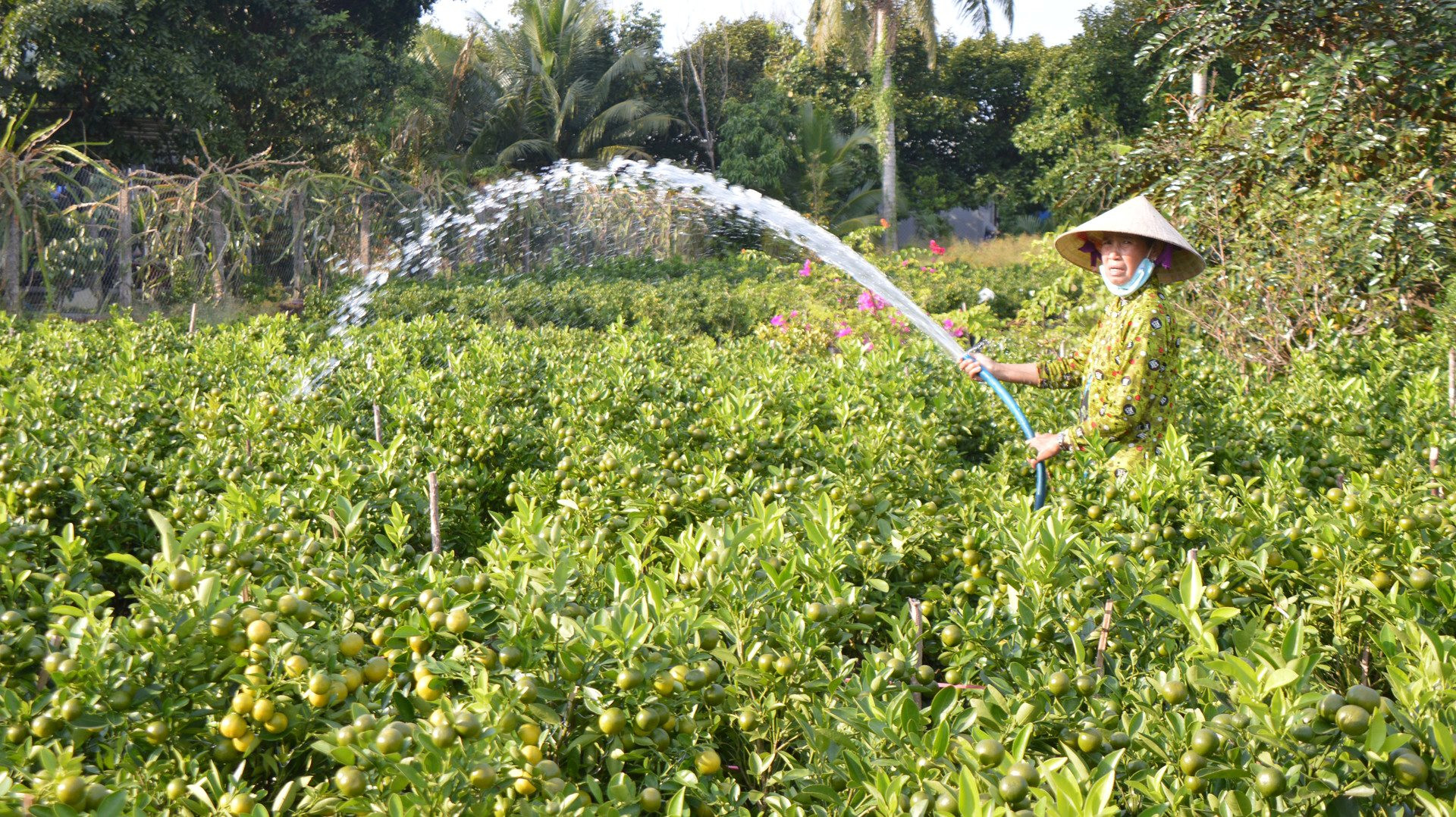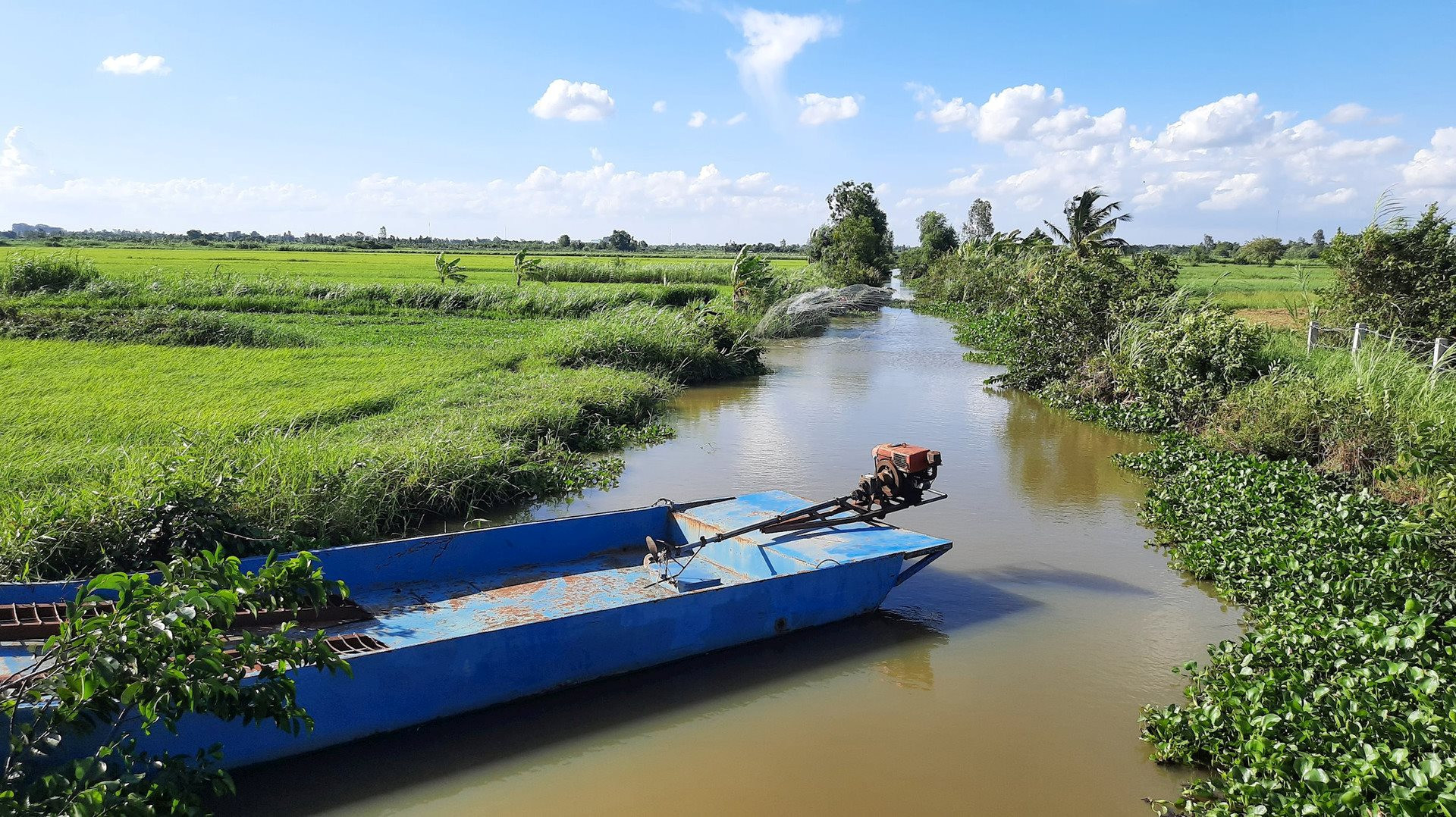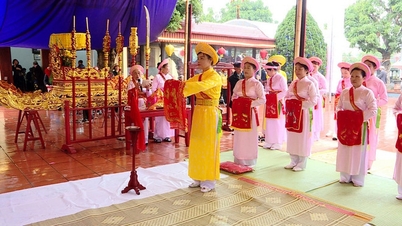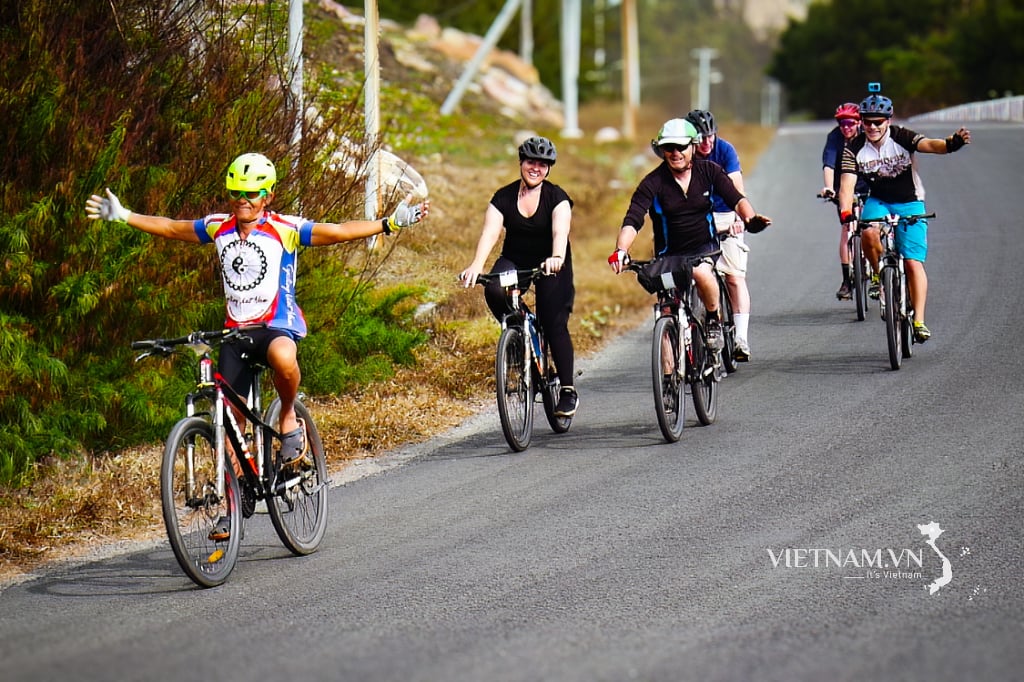Positive impact, effective
According to the assessment of the leaders of the Ben Tre Department of Natural Resources and Environment, in recent times, despite the difficult socio -economic conditions, the province's state management of land has achieved positive results, contributing to the recovery of the local economy. In particular, Ben Tre has focused on reviewing public land resources, and all land use plans and schemes are developed based on the land use needs of specialized plans, sectors, and new rural development plans.

In addition, the allocation, leasing, and conversion of land use purposes have been carried out promptly, meeting the land use needs of investors for project implementation. To date, Ben Tre province has a total of 4,024 land parcels requiring legal establishment with an area of nearly 9,361 hectares. The province has established legal status for 3,744 parcels with an area of 9,290 hectares, achieving a rate of over 99%, and these legally established land parcels have been registered in the land cadastral records as prescribed.
Speaking to reporters about the positive impact of state land management on social issues, Mr. Tran Quang Minh, Deputy Director of the Department of Natural Resources and Environment of Ben Tre province, said that in recent years, the compensation, support, and resettlement policies for land acquisition by the state have contributed to stabilizing the lives of hundreds of thousands of farming households. This is achieved through policies supporting vocational training and career chuyển đổi, resolving the conflict of interest between the state, landowners whose land is acquired, and investors.
At the same time, policies supporting production land, residential land, and housing for disadvantaged households and families have contributed to the effective implementation of the "poverty eradication" program. Policies on exempting or reducing land use fees when the state allocates residential land, recognizes land use rights, and policies on exempting or reducing various land-related taxes for poor households and people with meritorious service... have also contributed to reducing the poverty rate and effectively implementing the "gratitude and repayment" policy.
Regarding land management in the area in the coming period, Mr. Tran Quang Minh said that Ben Tre will strengthen the dissemination and education of land law, especially regarding compliance with regulations on land use conversion, so that organizations and individuals are aware of and comply with the law. At the same time, it will improve the quality of land use planning and plans to suit the socio-economic development of the locality and the needs of the people.
Transform production accordingly.
As a coastal province with a dense network of rivers and canals, Ben Tre province is heavily affected by climate change and rising sea levels. In response to this, the local people have learned to leverage their land advantages, boldly switching to suitable crops and livestock, resulting in positive outcomes and gradually stabilizing and significantly improving their income and living standards.

For example, Mr. Van Loc Dung in Ba Tri district has nearly 1 hectare of land for salt production. After a period of research and learning, he boldly switched from salt production on earthen floors to salt production on tarpaulins, achieving relatively high yields. In the last harvest season, Mr. Dung earned over 100 million VND in profit from harvesting clean salt, higher than with conventional salt production. Furthermore, salt production here is only possible during the dry season; during the rainy season, he also utilizes the land for crop rotation, raising fish and shrimp, which further improves his family's livelihood.
Meanwhile, many farmers in Thanh Phu district are gradually expanding the rice-shrimp farming model. This is a closed-loop crop rotation model, applied with the aim of using land and water in accordance with the natural environment and suitable for cultivation in the context of climate change. This model is highly effective and adapts well to the local natural conditions. According to assessments, farmers earn an average profit of about 100 million VND per hectare per year. In particular, both the rice and aquatic products are clean and of high quality, so the market demand is very strong.
Mr. Tran Van Lam, Head of the Department of Natural Resources and Environment of Ba Tri District, shared that as a coastal locality, facing a declining trend in agricultural land due to climate change and fragmented land plots, the district has promoted linkages to form model rice fields, applied high technology in shrimp farming, and built value chains through cooperatives and associations to help farmers increase productivity, stabilize output prices, and achieve high economic efficiency.
Simultaneously, the locality focuses on land use planning to zone land use in accordance with natural conditions and socio-economic development orientations. Based on this plan, the district will develop plans to establish specialized areas for coconut cultivation, rice cultivation, aquaculture, and salt production. This will help land users have a proper understanding, enabling them to choose appropriate production and business methods for sustainable development.
According to the Ben Tre Department of Agriculture, the province has focused on restructuring crop patterns on over 5,200 hectares of low-yield rice land. This policy aims to reorganize agricultural production to exploit the potential and leverage the advantages of the local land. Simultaneously, to effectively implement this restructuring, Ben Tre province will strengthen its efforts in disseminating information, mobilizing support, and guiding the conversion of low-yield, low-productivity rice-growing areas to other crops or a combination of rice cultivation and aquaculture that yields higher economic returns.
Source




![[Photo] General Secretary To Lam presides over a meeting with the Editorial Teams to summarize 100 years of the Party's leadership of the Vietnamese revolution and 40 years of implementing the National Construction Program.](https://vphoto.vietnam.vn/thumb/1200x675/vietnam/resource/IMAGE/2026/03/04/1772601288977_a1-bnd-8134-7576-jpg.webp)




































































































Comment (0)